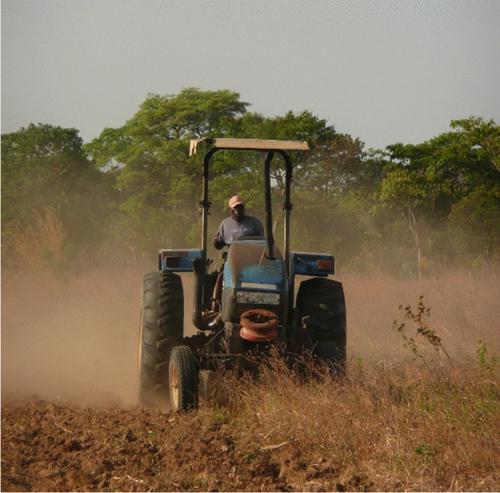Agronomy for Sustainable Development ( IF 6.4 ) Pub Date : 2023-01-25 , DOI: 10.1007/s13593-023-00868-x Thomas Daum

|
There is an urgent need for agri-food system transformation to achieve global sustainability goals. Innovations can play a key role in this transformation but often come with both sustainability synergies and trade-offs. One such innovation is agricultural mechanization, which is spreading rapidly in parts of the Global South and is high on the policy agenda in others. The rapid spread of mechanization is fundamentally changing the character of agri-food systems in the Global South, with both positive and negative effects. However, while some of these effects have been well explored, no study so far has systematically reviewed the sustainability synergies and trade-offs associated with mechanization, undermining necessary accompanying research and policy efforts. This review provides an overview of the progress toward mechanization across the Global South, identifies drivers and barriers, assesses sustainability synergies and trade-offs, and discusses options to maximize sustainability outcomes. The review is the first to holistically assess the potentials and risks of agricultural mechanization for the sustainable transformation of agri-food systems in the Global South, taking into account all pillars of sustainability. The review suggests that agricultural mechanization is needed to make agri-food systems more sustainable concerning various economic and social aspects, such as labor productivity, poverty reduction, food security, and health and well-being. However, there are also sustainability risks concerning environmental aspects such as biodiversity loss and land degradation, and economic and social concerns related to lacking inclusiveness and growing inequalities, among others. A wide range of technological and institutional solutions is identified to harness the potential of agricultural mechanization for sustainable agri-food system transformation, while at the same time minimizing the risks. However, more efforts are needed to implement such solutions at scale and ensure that mechanization contributes to agri-food systems that respect all pillars of sustainability.
中文翻译:

全球南方的机械化和可持续农业食品系统转型。回顾
迫切需要对农业食品系统进行转型,以实现全球可持续发展目标。创新可以在这种转变中发挥关键作用,但往往伴随着可持续性协同效应和权衡取舍。其中一项创新是农业机械化,它在全球南方的部分地区迅速传播,并在其他国家的政策议程中占据重要位置。机械化的迅速普及正在从根本上改变南半球农业食品系统的特征,既有积极影响,也有消极影响。然而,虽然其中一些影响已经得到很好的探索,但迄今为止还没有研究系统地审查与机械化相关的可持续性协同作用和权衡取舍,破坏了必要的伴随研究和政策努力。本综述概述了全球南方的机械化进展,确定了驱动因素和障碍,评估了可持续性协同作用和权衡取舍,并讨论了最大化可持续性成果的方案。该审查首次全面评估了农业机械化对全球南方农业粮食系统可持续转型的潜力和风险,同时考虑了可持续性的所有支柱。审查表明,需要农业机械化,使农业粮食系统在各个经济和社会方面更具可持续性,例如劳动生产率、减贫、粮食安全以及健康和福祉。然而,在环境方面也存在可持续性风险,例如生物多样性丧失和土地退化,以及与缺乏包容性和不平等加剧等相关的经济和社会问题。确定了广泛的技术和制度解决方案,以利用农业机械化的潜力实现可持续的农业食品系统转型,同时将风险降至最低。然而,需要付出更多努力来大规模实施此类解决方案,并确保机械化有助于尊重可持续性所有支柱的农业食品系统。











































 京公网安备 11010802027423号
京公网安备 11010802027423号